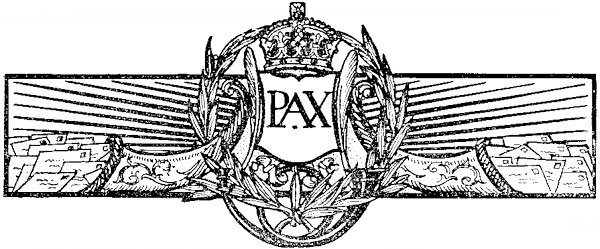Roman Provincias > Provincia Hispania
Provincia Hispania

Background
Provincia Hispania, commonly referred to simply as Hispania, was the Roman designation for the Iberian Peninsula, comprising modern-day Spain and Portugal. Here's an overview of the province:
Conquest and Formation:
The Roman conquest of the Iberian Peninsula began in the 3rd century BCE and extended over several centuries. The Carthaginians, led by Hannibal, controlled parts of the peninsula before being expelled by the Romans. After the Second Punic War (218-201 BCE), Rome gradually conquered and assimilated the various indigenous tribes and kingdoms of the peninsula into its empire. By the 1st century BCE, the entire territory was under Roman control. Initially, Hispania was divided into two provinces: Hispania Citerior (Nearer Spain) and Hispania Ulterior (Further Spain). Over time, the province underwent administrative reorganization, with additional subdivisions and changes in governance.
Geography and Resources:
Hispania was geographically diverse, featuring mountain ranges (such as the Pyrenees and the Sierra Nevada), fertile plains, and a lengthy coastline. Its varied terrain contributed to a diverse economy based on agriculture, mining, and maritime trade. The peninsula was rich in natural resources, including gold, silver, copper, iron, lead, and agricultural products such as grain, olives, and wine. These resources contributed to the prosperity and importance of Hispania within the Roman Empire.
Urban Centers and Infrastructure:
Hispania was dotted with numerous urban centers, many of which were founded or expanded by the Romans. These cities served as administrative, commercial, and cultural hubs, boasting impressive Roman architecture, such as temples, forums, amphitheaters, and aqueducts.Some of the prominent cities of Hispania included Emerita Augusta (modern-day Mérida), Corduba (modern-day Córdoba), Tarraco (modern-day Tarragona), and Hispalis (modern-day Seville).
Culture and Society:
Romanization had a significant impact on the culture, society, and governance of Hispania. Latin became the dominant language, although indigenous languages were also spoken, especially in rural areas. Hispania was home to a diverse population, including Roman settlers, indigenous Iberians, Celts, and other ethnic groups. Roman customs, laws, and institutions gradually replaced indigenous traditions, although elements of local culture persisted.
Military Presence and Defense:
The Roman military played a crucial role in securing and maintaining control over Hispania. Legions were stationed in strategic locations to defend the province from external threats and suppress internal unrest. The construction of fortifications, watchtowers, and roads helped to consolidate Roman control and facilitate communication and movement within the province.
Legacy and Decline:
Hispania remained under Roman rule for several centuries, contributing soldiers, administrators, and resources to the empire. However, in the 5th century CE, the western Roman provinces, including Hispania, faced increasing pressure from barbarian invasions, internal instability, and economic decline. By the end of the 5th century CE, Hispania had largely fallen under the control of Germanic tribes such as the Visigoths. The Roman presence in the region waned, marking the transition to the medieval kingdoms and the subsequent development of Spain and Portugal. Despite the decline of Roman authority, the legacy of Roman Hispania endured in its language, culture, architecture, and legal traditions, which continued to influence the region for centuries to come.
Roman Provincias
Roman Provincias List
- Provincia Achaea
- Provincia Aegypti
- Provincia Africa Proconsularis
- Provincia Cottiae
- Provincia Maritimae
- Provincia Alpes Poeninae
- Provincia Arabia Petraea
- Provincia Armenia
- Provincia Asia
- Provincia Assyria
- Provincia Augustamnica
- Provincia Bithynia et Pontus
- Provincia Britannia Inferior
- Provincia Britannia Superior
- Provincia Britannia
- Provincia Byzacena
- Provincia Cappadocia
- Provincia Cilicia
- Provincia Corsica et Sardinia
- Provincia Crete et Cyrenaica
- Provincia Cyprus
- Provincia Dacia Aureliana
- Provincia Dacia
- Provincia Dalmatia
- Provincia Galatia
- Provincia Gallia Aquitania
- Provincia Gallia Belgica
- Provincia Gallia Lugdunensis
- Provincia Gallia Narbonensis
- Provincia Germania
- Provincia Germania Inferior
- Provincia Germania Superior
- Provincia Hispania
- Provincia Hispania Baetica
- Provincia Hispania Citerior
- Provincia Hispania Lusitania
- Provincia Hispania Tarraconensis
- Provincia Hispania Ulterior
- Provincia Iudaea
- Provincia Lycia et Pamphylia
- Provincia Macedoniae
- Provincia Mauretania
- Provincia Mauretania Caesariensis
- Provincia Mauretania Tingitana
- Provincia Mesopotamia
- Provincia Moesia
- Provincia Moesia Inferior
- Provincia Moesia Superior
- Provincia Pannonia
- Provincia Pannonia Inferior
- Provincia Pannonia Superior
- Provincia Pannonia Valeria
- Provincia Raetia
- Provincia Sicilia
- Provincia Sophene
- Provincia Syria
- Provincia Syria Palaestina
- Provincia Syria Phoenice
- Provincia Thracia